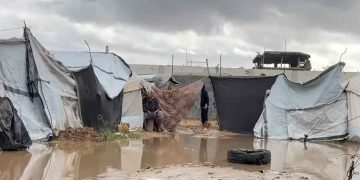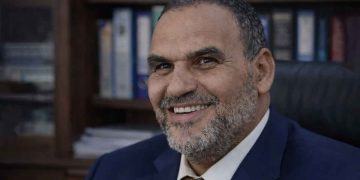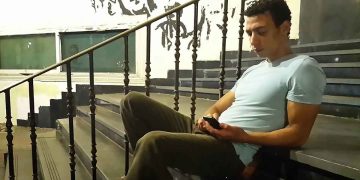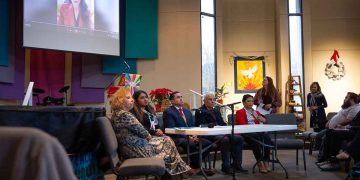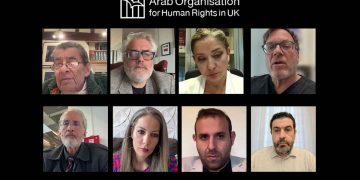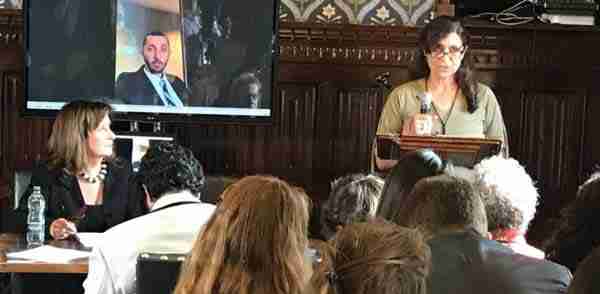- Report and Legal Opinion prepared by Helena Kennedy, The Baroness Kennedy of The Shaws, QC
- At least 6 people executed in 2019 were children at the time of their arrest and at least 3 more children remain at serious risk of being executed
- Many detainees have been tortured and subjected to grossly unfair trials prior to being sentenced to death
- There are at least 24 individuals identified as being at imminent risk of execution
- The Report makes 6 urgent recommendations including launching an independent investigation which grants access to those on death row, withdrawing support for the G20 summit in Saudi Arabia next year and a stay of all currently planned executions
- The Report and Recommendations are supported by several prominent politicians and figures from the UK and other EU member states, and various NGOs.
9th July 2019
LONDON – There has been an alarming spike in executions in Saudi Arabia with at least 134 people executed this year alone and at least another 24 at imminent risk of execution. These are the most recent figures revealed in a Report by Baroness Helena Kennedy QC titled “A Perverse and Ominous Enterprise; The Death Penalty and Illegal Executions in Saudi Arabia” which was released to the public today at the House of Commons of the British Parliament. The Report was prepared following interviews with family members of people currently awaiting the death penalty and those already executed earlier this year, their lawyers and various NGOs working with them. The event was hosted by Alberto Costa MP.
Six of those executed earlier this year were children at the time of their arrests, and at least three children are still at risk of being killed – a clear violation of Saudi law and international law. The Report highlights that many executed this year, as well as those currently facing execution, were arrested on vague and undefined ‘terrorism’ charges without any evidence.
Prominent cleric Salman Al-Awdah, who was due in court on July 28th but had his hearing postponed until November is one of those at imminent risk of execution. He could be given the death penalty for the farcical allegation of ‘mocking the government’s achievements’. He has been detained and tortured for nearly two years.
Many of those at risk were arrested as part of a major crackdown on opposition figures and human rights activists, and have endured lengthy periods of detention, solitary confinement, torture and sham trial proceedings. Many family members have reported that the mutilated bodies of their loved ones have been left on display in the public squares where the executions – usually through beheading by a sword – have taken place. The bodies were never returned to the families for burial.
The Report also highlights that there are many other detainees currently at risk of illegal execution but their families are too afraid to speak out or do not have any information on their whereabouts or circumstances. The Report concludes that the conduct of the Saudi government manifestly violates fundamental international laws and norms, which it has agreed to uphold but which are being constantly breached.
In light of these findings the Report recommends that:
- An independent fact-finding mission is immediately sent to Saudi Arabia to investigate the findings of the Report and guarantee the safety of those in danger;
- Diplomatic pressure should be levelled against Saudi Arabia regarding these violations and should Saudi Arabia not comply, all members of the G20, including the EU, should refuse to participate in the G20 Summit due to be held in Riyadh on 21-22 November 2020;
- A complete moratorium should be imposed on the use of the death penalty;
- Saudi Arabia should publish complete and up-to-date information about the number and identities of people currently on death row together with a full explanation of why the death penalty was imposed;
- The bodies of the deceased should be immediately released to their families; and
- The UN Human Rights Council should promptly intervene and investigate these violations, and consideration should be given to suspending Saudi Arabia from the Council.
Speaking at the launch of the Report, Baroness Kennedy said, “My inquiries show that the death penalty is increasingly being used by the Saudi authorities to seek to stifle all opposition to its repressive governance. They aim to terrorise their own people into remaining silent and being compliant. There has been a disturbing spike in executions, and many more detainees are in grave danger. These distressing circumstances reflect a deep-rooted disregard for the rule of law. They demand a firm and principled response from our government and all governments around the world, to prevent the unlawful killing on mass of those who stand up for human rights and democracy in Saudi Arabia.”
Baroness Kennedy, who is the Director of the International Bar Association’s Human Rights Institute, emphasised that “immediate access must be permitted to those facing the death penalty to secure their well-being. An independent body must be allowed in to verify the facts and prevent any more deaths. Saudi Arabia should not be allowed to host a world forum like the G20 when it behaves with no respect for humanity and basic international norms.”
Abdullah Alaoudh, the son of Salman Al-Awdah the prominent Saudi cleric who was arrested for tweeting about the ongoing Gulf crisis and who is at imminent risk of execution said in a recorded statement, “The judges that hand out the death penalty in Saudi Arabia are part of a special court which is entirely controlled by the Ministry of the Interior… if the judges do not follow the [rules of] the Ministry of Interior, the judges themselves are at risk of torture and arrest… A lot of people are still facing the death penalty including my father who is facing it on 37 bogus charges and vague accusations [such as] ‘mocking the government’s achievements’. Imagine being given the death penalty for ‘mocking the government’s achievements’, that’s how absurd the use of the death penalty is in Saudi Arabia.”
Also present at the launch was Zainab Abu Al-Khair. She is the sister of Hussain Abu Al-Khair who is currently on death row for unsubstantiated drugs charges. She said, “It is not right that this is happening to my brother and to other innocent people. My family have not spoken to Hussain for over 2 months, we do not know what is happening. He has been imprisoned for 5 years after being arrested because they claimed to find drugs in his car. He was tortured and forced to sign a confession saying that he was guilty. He has never met with a lawyer. He was given the death penalty after being in prison for 8 months. It is the second time we have appealed this sentence, but we don’t have any idea what is happening. I hope a group of people can go to investigate what is happening in Saudi prisons. My brother is not the only one there suffering so much. It is not right.”
Several British MPs and EU MEPs have supported the Report and its Recommendations including:
Alberto Costa MP
Stella Creasy MP said: “In a world so divided, it has never been more important to stand up for human rights and for due process and the fair rule of law – no nation can be above these principles, nor can any other overlook them however powerful those who abuse them are. The UK Government must challenge Saudi Arabia on this situation as a matter of urgency and call for a moratorium on executions given these concerns.”
Prof. Lord David Alton, House of Lords stated: “Whenever the UK Government is challenged about its apparent indifference to Saudi Arabia‘s appalling track record of egregious human rights violations, it justifies its silence by claiming that it uses its significant economic and security ties to exert back channel pressure. Serial executions – including those of children – and the punitive treatment of anyone who dares to challenge the authoritarianism that lies behind the regime’s behaviour, underlines how back channel influence is too often a self-serving piece of deceptive fiction. Helena Kennedy’s hugely important report spells out what we can do to make clear that while children are executed and the rule of law is disregarded it cannot be a case of business as usual with Saudi Arabia.”
Baroness Vivien Stern, House of Lords, Co-Chair of the All Party Parliamentary Group on the Abolition of the Death Penalty said: “I welcome this timely and important report on the shocking level of use of the death penalty in Saudi Arabia. Following China and Iran, Saudi Arabia executed the highest number of people in 2018. These executions occurred alongside multiple human rights abuses in terms of arrests, prosecutions, trials, appeals and the methods used to carry out the death penalty. Too little is do
ne by the international community to bring Saudi Arabia to account for its human rights abuses and it is hoped that this report will stimulate further action.”
Lord Michael Cashman, House of Lords stated: “These continuing executions in Saudi Arabia should cause the deepest concern in every country that considers itself civilised. It is truly appalling.”
Bianca Jagger, Goodwill Ambassador for the Council of Europe and campaigner against the death penalty said: “This Report presents the horrific extent of the human rights abuses by the Kingdom of Saudi Arabia and its total disregard for international standards and laws. This appalling use of the death penalty against children and anyone who opposes the regime is indicative of its ruthless authoritarianism.”
Hon. Fabio Massimo Castaldo, Vice President of the European Parliament, who has submitted a Parliamentary Question in light of the Report concerning the European Union’s stance on the widespread use of the death penalty by Saudi Arabia against opponents, human rights defenders, clerics, activists and children.
Senator Emma Bonino, Italian Senate, former Minister of Foreign Affairs of Italy and former European Commissioner said: “Baroness Kennedy’s report on the death penalty in Saudi Arabia presented today at the House of Commons in London paints a chilling picture. In addition to the 134 people who were executed only in the first half of 2019, including dissidents, political prisoners, and many minors, here are at least 24 others that are at imminent risk of execution. We cannot continue to turn a blind eye, and accept the normalization of state violence as a form of government in Saudi Arabia.”

